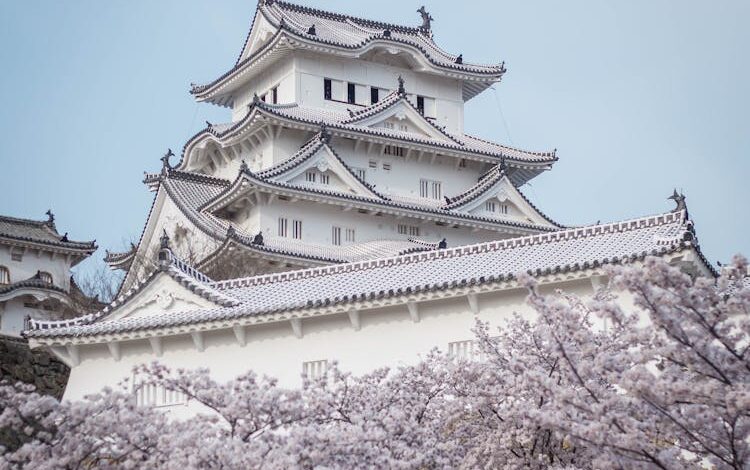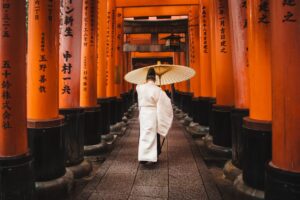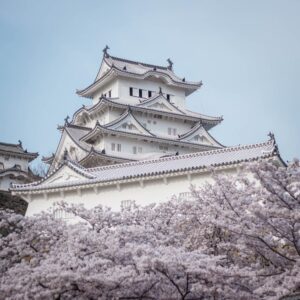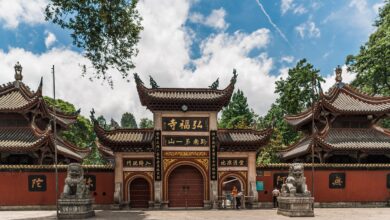
Japan, an island nation in East Asia, is renowned for its rich cultural heritage, technological innovation, and unique blend of tradition and modernity. From its bustling metropolises to its serene countryside, Japan offers residents and visitors alike a fascinating glimpse into a world where ancient customs coexist with cutting-edge technology. In this article, we delve into the various facets of life in Japan, from its culture and cuisine to its economy and education system.
Geography and Climate in Japan:
Japan’s geography is as diverse as its culture, with four main islands—Honshu, Hokkaido, Kyushu, and Shikoku—comprising the archipelago. The country’s mountainous terrain is punctuated by fertile plains, lush forests, and volcanic peaks, creating a landscape of striking beauty and natural wonders. Japan experiences a variety of climates, from the humid subtropical climate of the southern islands to the snowy winters of the northern regions. The changing seasons play a significant role in Japanese culture, with cherry blossom season in spring and colorful foliage in autumn celebrated with festivals and traditions.
Culture and Lifestyle in Japan:
Japan’s culture is steeped in tradition and influenced by centuries of history, art, and philosophy. From the elegant tea ceremony and the graceful art of flower arranging (ikebana) to the intricate craftsmanship of traditional crafts such as ceramics and textiles, Japanese culture places a strong emphasis on beauty, harmony, and attention to detail. In modern Japan, these traditions coexist alongside a vibrant pop culture scene, with anime, manga, and video games enjoying worldwide popularity. Japanese society values politeness, respect, and group harmony, which are reflected in everyday interactions and social customs.
Education and Healthcare in Japan:
Japan’s education system is renowned for its rigor and high academic standards. From an early age, students are expected to work hard and excel in their studies, with entrance exams determining admission to prestigious schools and universities. Despite the pressure of exams and intense competition, Japan’s education system emphasizes discipline, creativity, and critical thinking skills. Similarly, Japan’s healthcare system is among the best in the world, with universal coverage ensuring that all residents have access to affordable medical care. Japan’s life expectancy is among the highest globally, thanks in part to its emphasis on preventive care and healthy lifestyle choices.
Cuisine in Japan:
Japanese cuisine is celebrated for its freshness, simplicity, and exquisite presentation. From sushi and sashimi to tempura and ramen, Japanese cuisine offers a diverse array of flavors and textures to tantalize the taste buds. Key ingredients such as rice, seafood, and seasonal vegetables form the basis of many traditional dishes, while regional specialties showcase the unique flavors of different prefectures. Beyond its culinary delights, Japan is also known for its culinary culture, with food rituals and customs playing a central role in social gatherings and celebrations.

Economy in Japan:
Japan boasts the third-largest economy in the world, characterized by its technological innovation, manufacturing prowess, and global influence. From electronics and automobiles to robotics and renewable energy, Japan is a leader in numerous industries, driving economic growth and prosperity. Despite facing challenges such as an aging population and sluggish economic growth in recent years, Japan remains a powerhouse of innovation and resilience. The government continues to invest in research and development, infrastructure projects, and international partnerships to ensure Japan’s continued economic success.
Leisure and Recreation in Japan:
Japan offers a wealth of leisure activities for residents and visitors to enjoy, from exploring ancient temples and shrines to shopping in bustling city centers. Nature lovers can hike in pristine national parks, soak in natural hot springs (onsen), or admire the cherry blossoms in bloom. Urbanites can immerse themselves in the vibrant street life of Tokyo, Osaka, and other major cities, with their neon-lit streets, trendy cafes, and world-class shopping districts. Traditional arts such as kabuki theater, sumo wrestling, and tea ceremonies provide cultural enrichment and entertainment for all.

Social Welfare in Japan:
Japan places a strong emphasis on social welfare, providing its citizens with a comprehensive system of healthcare, education, and social security. The government-funded healthcare system ensures that all residents have access to affordable medical care, contributing to Japan’s high life expectancy and low infant mortality rate. Similarly, Japan’s education system is highly regarded for its academic rigor and emphasis on discipline, creativity, and critical thinking skills. Additionally, Japan’s social security system provides support for retirees, individuals with disabilities, and those in need, ensuring a basic standard of living for all citizens.
Challenges in Japan:
Despite its many strengths, Japan faces several challenges that require careful consideration and strategic planning. One of the most pressing issues is the country’s aging population and declining birth rate, which pose significant challenges for the economy, healthcare system, and social welfare programs. Addressing these demographic trends will require innovative solutions, such as increasing immigration, promoting work-life balance, and implementing policies to support families and caregivers. Additionally, Japan must grapple with environmental challenges such as pollution, deforestation, and climate change, which threaten the country’s natural beauty and biodiversity. By embracing sustainability, diversity, and inclusivity, Japan can overcome these challenges and continue to thrive in the 21st century.
In conclusion, life in Japan offers a captivating blend of tradition, innovation, and resilience, where ancient customs and cutting-edge technology coexist harmoniously. With its rich cultural heritage, strong economy, and commitment to social welfare, Japan remains a beacon of progress and possibility in an ever-changing world. By addressing challenges such as demographic shifts and environmental sustainability, Japan can build a brighter future for generations to come, ensuring that the country’s unique charm and character endure for centuries to come.

Life in Japan offers a fascinating blend of tradition and modernity, where ancient customs and cutting-edge technology coexist harmoniously. With its rich cultural heritage, high standard of living, and spirit of innovation, Japan continues to captivate the imagination of people around the world. Whether you’re drawn to its ancient temples, bustling cities, or culinary delights, Japan offers a truly unforgettable experience for those willing to explore its wonders.
